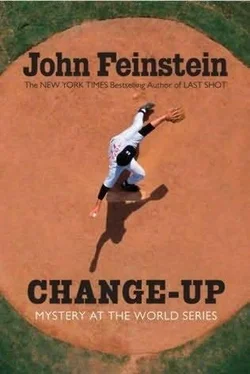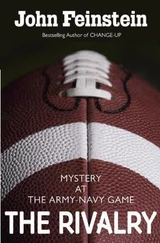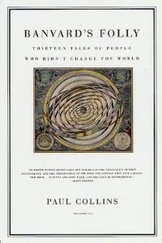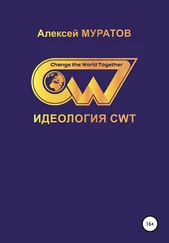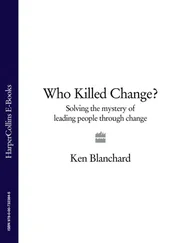“You ask yourself the question: does the public need to know this? Sometimes the answer is yes. Sometimes no. There are tough calls to be made all the time. In this case I think the only reason the public would need to know this particular truth is if Doyle wrote a book or allowed a movie to be done on his life in which he lied about it.”
“I don’t think he’s going to do that now,” Stevie said.
“Me neither,” Susan Carol put in. Tamara was nodding in agreement.
“So what do we do now?” Stevie asked.
“I think we need to tell him before the game tonight that you aren’t writing the story, so it won’t be on his mind. Tell him you assume the movie’s off, and that if that’s the case, you don’t see any reason to tell the kids or anyone else what happened that night.”
“What about Joe Molloy?” Stevie said. “All he’s done is lie.”
“Yeah, but Joe Molloy is not news,” Kelleher said. “And I suspect he’s lived with a lot of guilt for the past twelve years. And you can even make the case that he thought he was doing the right thing.”
“So why didn’t he just tell us the truth?” Susan Carol asked.
This time it was Stevie who answered. “He kind of did… Remember, he said, ‘I can’t help but think of all the things I might have done differently that could have averted the accident’?”
“One more question,” Susan Carol said. “What if we find out next week that Doyle has made a movie deal?”
Kelleher held up the tape. “You’ll still have this in your back pocket,” he said. “And then you’ll use it.”
On the way to the ballpark, Kelleher read over the letter that Stevie and Susan Carol had written to Doyle one more time. It basically came down to this: “If you don’t sell a false story about yourself, we don’t think there’s any reason to tell this true story.”
“But how do we get Doyle to read this before the game?” Stevie asked. “The clubhouses are closed.”
“I’ve got that covered,” Kelleher said.
Should have known, Stevie thought.
As soon as they arrived at the ballpark, they headed for the field. Kelleher made a beeline for his friend Phyllis Merhige, with Stevie and Susan Carol in tow.
“Hey, guys, what’s up?” Merhige asked.
“Glad you asked,” Kelleher said, pulling the envelope with the letter out of his pocket. “I need you to deliver this to Norbert Doyle for Stevie and Susan Carol.”
Merhige looked at the three of them quizzically. “You’ll all get to see him after the game, why do you need me to do it?” she asked.
“Because you need to do it right now,” Kelleher said.
“Now?!” Phyllis shouted. “Bobby, the man is pitching game seven of the World Series in three hours and you want me to deliver a note to him now? Are you completely nuts?”
“Phyllis, how long have we known each other?” Kelleher asked.
“Too long,” she responded.
“What do you think the chances are I’d ask you to do something like this if it wasn’t vitally important and the best possible thing for the player involved?”
Merhige looked at him, then at Stevie and Susan Carol.
“I trust you two more than I trust him right now,” she said, half kidding, Stevie guessed. “Is it really that important?”
They both nodded. “He’ll thank you for getting it to him,” Stevie said.
She took the envelope from Kelleher’s hand.
“Oh, there’s one more thing,” he said.
“What?” she said, exasperated.
“You have to wait for an answer.”
“An answer? What kind of answer?”
“He needs to write on the back of the note ‘Agreed’ or ‘Do not agree.’”
“That’s it?”
“Yup. That’s it. Simple task. I will explain the whole thing to you over dinner the next time I’m in New York.”
She gave him a look. “It better be an expensive dinner,” she said.
“Smith & Wollensky,” Kelleher said. “I’ll have Murph set the whole night up.”
Without another word she walked down the steps into the third-base dugout and disappeared.
“Wait a second,” Stevie said. “What if the answer is ‘Do not agree’?”
“Then you guys will have a lot of writing to do before the night is over,” Kelleher said. “In fact, you’ll probably have to write during the game.”
Twenty minutes later Phyllis Merhige reappeared, envelope in hand.
“The fact that I didn’t look at this is testimony to either what a good person I am or what a lousy PR person I am,” Merhige said. “Whatever it is, though, you appear to have made his day.”
“Did he thank you?” Stevie asked.
“He hugged me to within an inch of my life,” she said.
She handed Kelleher the envelope. Kelleher leaned down and gave her a kiss. “Thank you, Phyllis,” he said. “You’re the best.”
“Save the charm,” she said. “You owe me Smith & Wollensky and a great bottle of wine.”
Phyllis walked away. Kelleher handed Stevie and Susan Carol the envelope.
“You guys open it,” he said.
Susan Carol pulled the note out and turned it over. Stevie could see that Doyle had written five words on the back, all of it in capital letters: “ABSOLUTELY AGREED. THANK YOU… FOREVER…”
They handed the note to Kelleher, who handed it to Tamara.
Susan Carol looked at Stevie and gave him the Smile. “I guess,” she said, “we get to watch the game.”
“All that work and we don’t write a word,” Stevie sighed.
“And I’ve never been more proud of you both,” Kelleher said.
After all that had gone on, game seven was almost anti-climactic for the first six innings. Doyle walked Dustin Pedroia with one out in the first, and then David Ortiz promptly hit his next pitch into the right-field bullpen for a 2-0 Red Sox lead. The lead went to 3-0 in the third on back-to-back doubles by Mike Lowell and J.D. Drew.
But the Nationals answered with three runs of their own against Tim Wakefield in the fourth on a single by Ryan Zimmerman, a double by Adam Dunn, a triple that scored two runs by Elijah Dukes, and a sacrifice fly by Aaron Boone.
“That didn’t take long,” said George Solomon. “Sort of like going eighty yards in four plays.”
“Sort of like quieting the crowd,” Mark Maske pointed out.
Wakefield came out of the game after six innings with the score tied 3-3. Manny Acta continued with Doyle on the mound, even though the Red Sox seemed to be hitting line drives right at fielders in every inning.
There were men on second and third and two outs in the seventh when Ortiz hit a shot to the gap in right-center. The crowd stood as one, then sat again, deflated, when Dukes tracked the ball down.
“How much longer will Acta stick with him?” Stevie asked. Watching him pitch was nerve-wracking.
“What are his options?” Barry Svrluga asked. “He obviously doesn’t trust his bullpen, even with all the other starters out there. Doyle’s pitch count is only eighty-eight so far and it’s a cool night.”
“Freezing is more like it,” Susan Carol said.
“Good pitching weather,” Svrluga said. “I think if he gets in any trouble in the eighth, he brings in a starter maybe Lannan again. I’d be surprised if Doyle’s still out there for the ninth.”
The crowd was now officially restless. This was not supposed to be a seven-game series to begin with, especially after the Red Sox had gone up 3-2 coming back to Boston. Twenty-three years earlier, in 1986, the Red Sox had led the Mets 3-2 after five games-except that year the last two games were in New York.
“People forget that even after Buckner’s famous error in game six, the Red Sox led three to nothing in game seven,” Susan Carol pointed out after Okajima had retired the Nats one-two-three in the eighth.
Читать дальше
